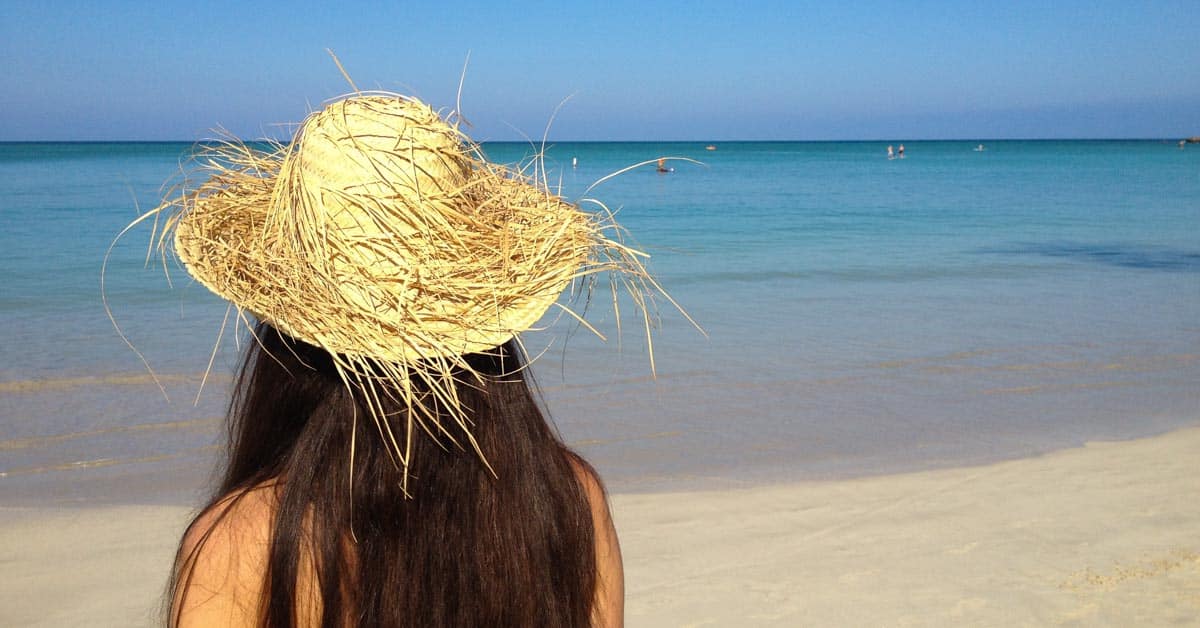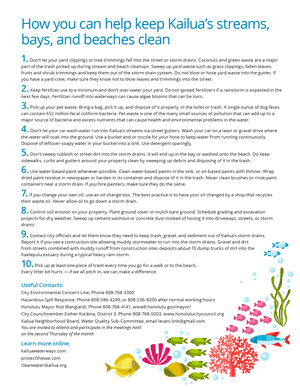
Don’t just talk about how bad things are… be a part of the solution by getting involved!

Click above for a pdf that you can print or share.
1. Let City officials know that they need to do more.
Every email or phone call makes a difference. Click for contact info and sample messages you can use.
2. Sweep driveways, sidewalks, and road gutters.
Don’t hose them down as it ends up in the lake or in the ocean. If you have a yard crew, make sure they know not to blow leaves and trimmings into the street. If you live near a storm channel, let the City Dept. of Facility Maintenance know if it is being used to dispose of trash or branches.
3. Keep fertilizer use to a minimum and don’t fertilize if a rainstorm is expected.
Fertilizers can cause algae blooms! Need we say more?
3. Report violations… both litter and muddy construction runoff.
If you see anyone tossing debris or tires into the lake, contact ELRA, if you see muddy runoff from a construction site, contact the State Dept. of Health, Clean Water Branch.
4. Control soil erosion on your property.
Plant ground cover or mulch bare ground. Do not over-water your yard. If you are planning construction, schedule grading and excavation projects for dry weather. Sweep instead of hosing dirt into driveways, streets, gutters or storm drains.
5. Plant a Rain Garden or use a rain barrel to catch water from your roof
Runoff that stays on your property will not wash contaminants into the lake and ocean. Learn more about Hawaii rain gardens.
6. Don’t let your car wash water run into the lake or ocean via street gutters.
Wash your car on a lawn or gravel drive where the water can soak into the ground. Use a bucket and or nozzle for your hose to keep water from running continuously. Use detergent sparingly. A rule of thumb is to use no more cleaner solution than can be rinsed using a 5 gallon bucket of rinse water.
7. Clean up pet waste.
Bring a bag, pick it up, and dispose of it properly. Pet waste is one of the many little sources of pollution that can add up to a major source of bacteria and excess nutrients that can cause algae blooms.
8. Use water-based paint whenever possible.
Clean water-based paints in the sink, or oil-based paints with thinner. Never clean brushes or rinse paint containers near the street. If you hire painters, make sure they do the same.
9. Maintain your car responsibly.
If you change your own oil, use an oil change box. If you see fluid under your car, see a mechanic. Best to have your oil changed by a shop that recycles their waste oil. Never use old oil to kill weeds or allow oil to go down a storm drain. Corrosion of vehicle parts is a source of heavy metals that end up on roads and then get washed into the lake during rainstorms.
10. Pick up at least one piece of trash every time you go for a walk or to the beach
Every litter bit hurts — if we all pitch in, we can make a difference.
Two more just for people who live on the water
1. Don’t let your yard clippings or tree trimmings fall into the water.
Coconuts and palm fronds are a major part of the trash picked up during lake cleanups.
2. Remove trash or algae floating near your property.
Dry the algae to make free compost for your plants or throw it away with the greenwaste trash. Just think how much cleaner the water would be if each of us removed one bag of litter and algae a week!